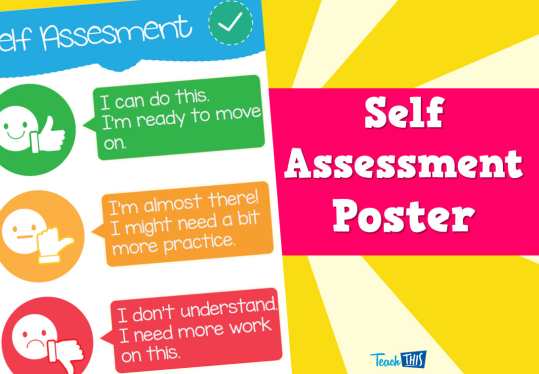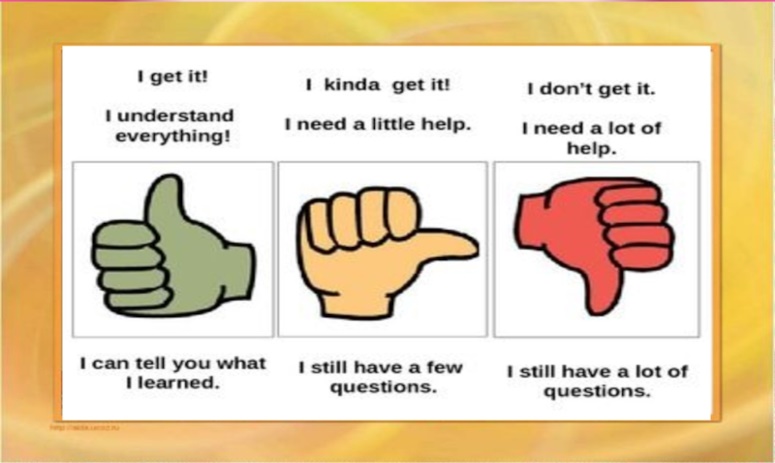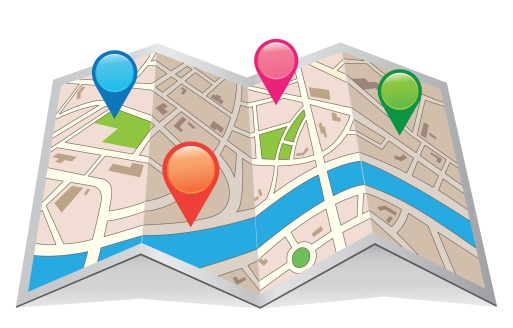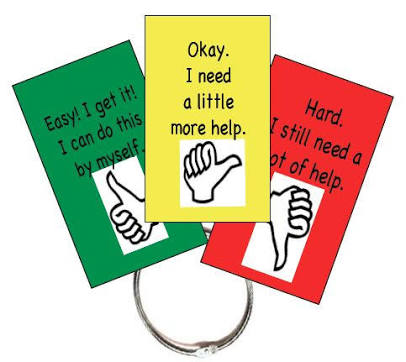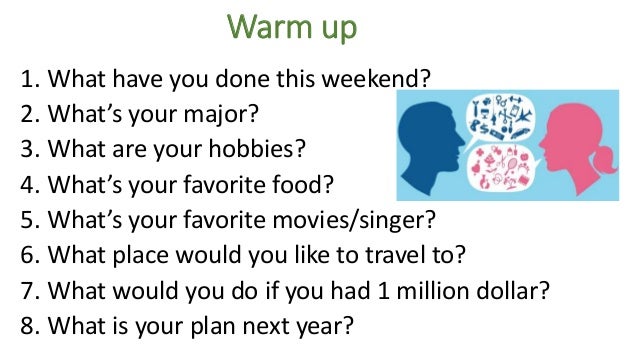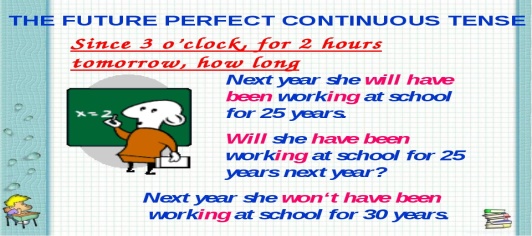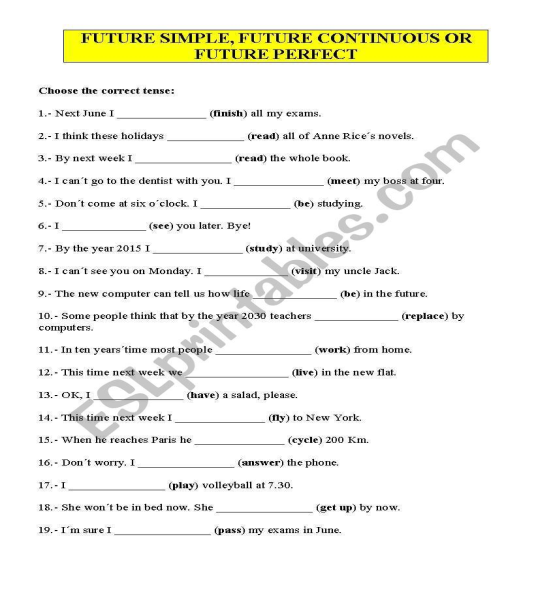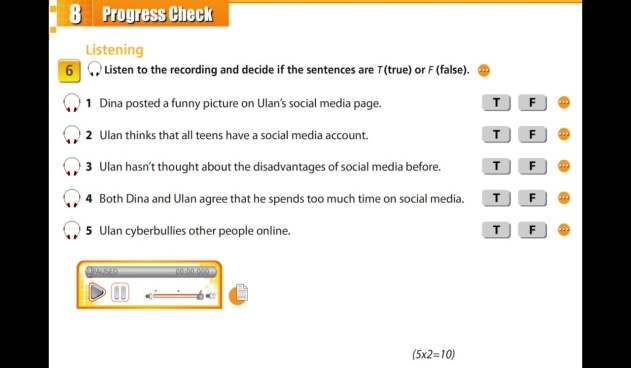Назар аударыңыз. Бұл материалды сайт қолданушысы жариялаған. Егер материал сіздің авторлық құқығыңызды бұзса, осында жазыңыз. Біз ең жылдам уақытта материалды сайттан өшіреміз
Жақын арада сайт әкімшілігі сізбен хабарласады

Бонусты жинап картаңызға (kaspi Gold, Halyk bank) шығарып аласыз

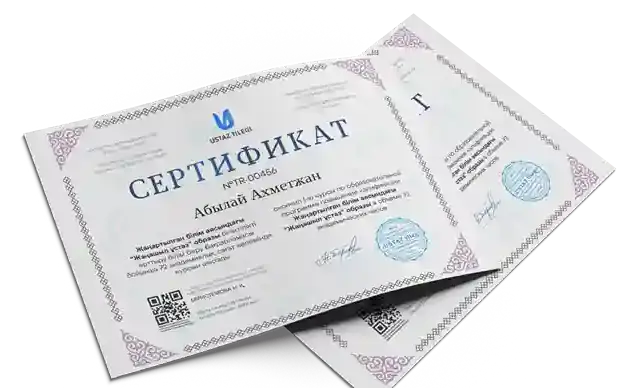
Aspect оқулығы бойынша 10сынып 2-тоқсан ҚМЖ жинағы
Дипломдар мен сертификаттарды алып үлгеріңіз!


Материалдың толық нұсқасын
жүктеп алып көруге болады
Short term plan: term 2
Тексерілді:
|
Unit: 3 Virtual reality |
Lesson 25 |
||
|
Teacher name: |
|
||
|
Date: |
06.11.2023 |
||
|
Grade: 10 |
Number present: |
absent: |
|
|
Lesson title |
Predictions |
||
|
Learning objectives |
10.3.5.1 - interact with peers to make hypotheses about a wide range of general and curricular topics; 10.3.7.1 - use appropriate subject-specific vocabulary and syntax to talk about a range of general and curricular topics; |
||
|
Lesson objectives |
Learners will be able to: - introduce the topic and present new vocabulary - make predictions |
||
|
Plan |
|||
|
Stages / Time |
Teachers actions |
Students actions |
Assessment criteria |
Resources |
|
Beginning of the lesson Warming-up
3 min. Pre-learning «Brainstorming» method 7 min. |
Organization moment : 1.Greeting. Ask about the weather. The teacher sets the lesson objectives, letting students know what to anticipate from the lesson. Warming up Where are you from? How old are you? What color is it? How many students are there in class? What day of the week today? Lead – In
How do the people to predict their life? |
The aim: To develop pupils speaking skills and create friendly atmosphere Efficiency: By wishing each other they feel better and feel the support of others Students of the class are listed. Students' attention is drawn to the lesson. Students say different words from the picture •Learners remember previous lesson vocabulary •Learners answer the questions |
The teacher to assess learners for their ability. “Good job! Well done!” Formative Assessment
Good job! Descriptor: - remembers the lesson passed Point 1 Assessment criteria make basic statements related to personal information, people and objects |
Pictures worksheet Picture |
|
Middle of the lesson Presentation part. 30 min |
Ex:1 P:33 • Direct Ss' attention to the pictures and the gapped phrases under each one. Read out the words in the list and give Ss time to use the words provided to complete the gaps (1-8). Check Ss' answers. Ex: 2 P: 33 • Explain that we use will to make a positive prediction and won't to make a negative prediction. Read out the examples and then give Ss time to complete the task in pairs. Check Ss' answers around the class Conclusion during the lesson some tasks differentiated by outcomes of the students and by their abilities. |
• Learners use the words in the list to complete the gaps. ANSWERS 1 printed 2 pill 3 drones 4 electric 5 solar-powered 6 outer 7 online 8 reality • Learners answer the question ANSWERS I think we won't commute on drones. I think we will use electric cars. I think we will live in solar-powered houses. I think we won't live in outer space. I think we won't learn online from home. I think we will use virtual reality devices in classrooms |
Descriptor: - use the words in the list - complete the gaps Total: 3 point
Self assessment Differentiation: «Verbal support» method is used to help Ss use new words in the sentences. Descriptor: - answer the question Total: 3 point -Make CCQ questions Yes / No |
Card Worksheet Students book |
|
End of the lesson 5 min |
FEEDBACK Learners provide feedback on what they have learned at the lesson. Ex: P: Home task: Write the days |
|
Poster Success
|
|
Short term plan: term 2
Тексерілді:
|
Unit 3 Virtual reality |
Lesson 26 |
||
|
Teacher name: |
|
||
|
Date: |
07.11.2023 |
||
|
Grade: 10 |
Number present: |
absent: |
|
|
Lesson title |
Virtual Reality |
||
|
Learning objectives |
10.3.7.1 - use appropriate subject-specific vocabulary and syntax to talk about a range of general and curricular topics; 10.4.1.1 - understand main points in extended texts on a wide range of familiar and some unfamiliar general and curricular topics; 10.4.2.1 - understand specific information and detail in extended texts on a range of familiar general and curricular topics, and some unfamiliar topics; |
||
|
Lesson objectives |
Learners will be able to: - introduce the topic and predict the content of the text - read for specific information (answer questions) |
||
|
Plan |
|||
|
Stages / Time |
Teachers actions |
Students actions |
Assessment criteria |
Resources |
|
Beginning of the lesson Warming-up
3 min Pre-learning «Brainstorming» method 7 min. |
Organization moment : 1.Greeting. Ask about the weather. The teacher sets the lesson objectives, letting students know what to anticipate from the lesson. Warming up Where are you from? How old are you? What color is it? How many students are there in class? What day of the week today? Ask a few pupils to stand up and stand in a row. Ask the rest of the class questions to revise the ordinals. Lead – In
|
The aim: To develop pupils speaking skills and create friendly atmosphere Efficiency: By wishing each other they feel better and feel the support of others Students of the class are listed. Students' attention is drawn to the lesson. Determines the topic and purpose of the lesson •Learners remember previous lesson vocabulary Students say different words from the picture Answer the question. |
The teacher to assess learners for their ability. “Good job! Well done!” Formative Assessment
Good job! Descriptor: - know daily routines vocabulary - know prepositions of place Point 1 Assessment criteria - Learners have met the learning objectives if they can talk about |
Pictures worksheet Student’s book |
|
Middle of the lesson Presentation part. 30 min |
Ex:1 P:34 • Ask Ss to read the definition and elicit Ss' ideas about how virtual reality can change our lives. Play the recording. Ss follow in their books and find out if their ideas match those in the text. Ex: 2 P: 34 • To read for specific information (answer questions) Read out the questions. Give Ss time to read the text and answer them in complete sentences in their own words. Check Ss' answers around the class. Ex: 3 P: 34 • Ask Ss to read the statements (1 & 2). Give Ss time to read the text again and decide if each statement is true or false and mark them accordingly. Check Ss' answers around the class and ask Ss to correct any false statements by making them true. Ex: 4 P: 34 • Ask Ss to read the questions (1-3). Give Ss time to underline the key words and elicit synonyms for them. Give Ss time to read the text again and choose the correct answers. Check Ss' answers around the class. |
• Pupils read the definition. Answer the question. ANSWERS Virtual Reality will affect leisure, education and shopping. • Pupils listen and read the text and answer the question and complete the sentences. ANSWERS 1 VR headsets have been available for fifty years. 2 Total VR will first be used in video games. 3 Shoppers will benefit from VR because they will be able to look around virtual shops and touch the products for sale. • Pupils mark the statements true or false ANSWERS 1 F (It's only in the past fifty years that technology has advanced enough to create Virtual Reality 3D headsets.) 2 T • Pupils choose the correct options ANSWERS 1 A 2 B 3 B |
Descriptor: - read the definition - answer the question. Total: 2 point pupils are evaluated by collecting fish Descriptor: - listen and read the text - complete the sentences. Total: 1 point Descriptor: - mark the statements true or false Total: 2 point Self assessment
-Make CCQ questions Yes / No Total: 10 point |
Card Worksheet Students book |
|
End of the lesson 5 min |
FEEDBACK Learners provide feedback on what they have learned at the lesson. Ex: P: Home task: Write the days |
|
Poster Success
|
|
Short term plan: term 2
Тексерілді:
|
Unit 3 Virtual reality |
Lesson 27 |
||
|
Teacher name: |
|
||
|
Date: |
08.11.2023 |
||
|
Grade: 10 |
Number present: |
absent: |
|
|
Lesson title |
Transport |
||
|
Learning objectives |
10.3.7.1 - use appropriate subject-specific vocabulary and syntax to talk about a range of general and curricular topics; 10.6.8.1 - use a variety of future active and passive and future continuous forms on a wide range of familiar general and curricular topics; |
||
|
Lesson objectives |
Learners will be able to: - consolidate vocabulary from a text - resent vocabulary relating to transport - complete a cloze text; to read for cohesion and coherence |
||
|
Plan |
|||
|
Stages / Time |
Teachers actions |
Students actions |
Assessment criteria |
Resources |
|
Beginning of the lesson Warming-up
3 min Pre-learning «Brainstorming» method 7 min. |
Organization moment : 1.Greeting. Ask about the weather. The teacher sets the lesson objectives, letting students know what to anticipate from the lesson. Warming up Where are you from? How old are you? What color is it? How many students are there in class? What day of the week today? revise the vocabulary from the previous Lead – In
what the drivers use in order to find a place position? |
. The aim: To develop pupils speaking skills and create friendly atmosphere Efficiency: By wishing each other they feel better and feel the support of others Students of the class are listed. Students' attention is drawn to the lesson. • Learners remember previous lesson vocabulary Determines the topic and purpose of the lesson Students say different words from the picture |
The teacher to assess learners for their ability. “Good job! Well done!” Formative Assessment
Good job! Descriptor: - can tell the time Point 1 Assessment criteria - Learners have met the learning objectives if they can talk about persons character |
Pictures worksheet Picture |
|
Middle of the lesson Presentation part. 30 min |
Ex: 1 P: 36 • Explain the task and give Ss time to complete it. Check Ss' answers. Ex:2 P: 36 • Explain the task and give Ss time to complete it. Check Ss' answers Ex: 3 P: 36 • practise prepositional phrases Give Ss time to complete the task. Check Ss' answers. Ex: 4 P: 36 • Give Ss time to choose the odd word out from each list and then check their answers in their dictionaries. Check Ss' answers again around the class. Ex: 5 P: 36 • Ask Ss to look up the meanings of any unknown words in their dictionaries. Explain the task and give Ss time to complete it. Check Ss' answers. Conclusion during the lesson some tasks differentiated by outcomes of the students and by their abilities. |
•Pupils choose the correct word. ANSWERS 1 leap 2 industry 3 spending 4 limit 5 touch 6 recreate •Pupils complete the collocations ANSWERS 1 brain 2 digital 3 golf 4 educational 5 online 6 virtual •Pupils choose the correct preposition ANSWERS 1 of 2 for 3 through 4 in 5 for •Pupils choose the odd word out. ANSWERS 2 nose 3 bell 4 saddle 5 licence plate 8 anchor 6 pedal 7 steering wheel Pupils complete the announcements ANSWERS 1 light 2 seatbelt 3 baggage 4 compartments 5 rail 6 belongings 7 carriage 8 stop 9 passengers 10 port 11 deck 12 crew |
Descriptor: - choose the correct word Total: 1 point
Descriptor: - complete the collocations Total: 1 point
Descriptor: - choose the correct preposition Total: 1 point Descriptor: - choose the odd word out. - complete the announcements Total: 1 point -Make CCQ questions Yes / No pupils are evaluated by collecting pencils |
Card Worksheet |
|
End of the lesson 5 min |
FEEDBACK Learners provide feedback on what they have learned at the lesson. Ex: Home task: |
|
Poster Success
|
|
Short term plan: term 2
Тексерілді:
|
Unit 3: Virtual reality |
Lesson 28 |
||
|
Teacher name: |
|
||
|
Date: |
13.11.2023 |
||
|
Grade: 10 |
Number present: |
absent: |
|
|
Lesson title |
Future tenses |
||
|
Learning objectives |
10.4.1.1 - understand main points in extended texts on a wide range of familiar and some unfamiliar general and curricular topics; 10.4.2.1 - understand specific information and detail in extended texts on a range of familiar general and curricular topics, and some unfamiliar topics; 10.6.4.1 - use a wide variety of determiners and pre-determiner structures on a wide range of familiar general and curricular topics; |
||
|
Lesson objectives |
Learners will be able to: - present/revise future tenses - practise will and be going to - practise be going to with personal examples |
||
|
Value links |
Honesty – You may highly value telling people the truth. This one gets tricky when being honest can be hurtful to others. So, a person who really puts honesty first might be the sort of person who will tell the truth even if it hurts to do so. |
||
|
Plan |
|||
|
Stages / Time |
Teachers actions |
Students actions |
Assessment criteria |
Resources |
|
Beginning of the lesson Warming-up
3 min Pre-learning «Brainstorming» method 7 min. |
Organization moment : 1.Greeting. Ask about the weather. The teacher sets the lesson objectives, letting students know what to anticipate from the lesson. Warming up Where are you from? How old are you? What color is it? How many students are there in class? What day of the week today? revise the language from the previous lesson Lead – In |
The aim: To develop pupils speaking skills and create friendly atmosphere Efficiency: By wishing each other they feel better and feel the support of others Students of the class are listed. Students' attention is drawn to the lesson. • Learners talk about daily routines previous lesson vocabulary Determines the topic and purpose of the lesson Students say different words from the picture |
The teacher to assess learners for their ability. “Good job! Well done!” Formative Assessment
Good job! Descriptor: - talk about daily routines Point 1 Assessment criteria - Learners have met the learning objectives if they can talk about natural features |
Pictures worksheet Student’s book |
|
Middle of the lesson Presentation part. 30 min |
Ex:1 P:38 • Direct Ss' attention to the text and then give them some time to read it. Then ask Ss to match the verb forms in bold to the uses (A-G). Check Ss' answers and refer them to the Grammar Reference section for more information. Ex: 2 P: 38 • Explain the task and then ask Ss to ask and answer in pairs using the prompts. Monitor the activity around the class and then ask some Ss to share their predictions with the class. Ex: 3 P: 38 • practise will and be going to Explain the task and then give Ss time to complete the task. Check Ss' answers.\ . Ex: 4 P: 38 Explain the task and read out the example. Then give Ss time to complete the task in closed pairs. Check Ss' answers by asking various Ss to share their answers with the class. Conclusion during the lesson some tasks differentiated by outcomes of the students and by their abilities. |
•Pupils read the text. Match the verbs in bold. ANSWERS A 2 C 1 E 7 G6 B 5 D 4 F 3 •Pupils in pairs, ask and answer the questions. ANSWERS 2 A: Will universities only teach online courses? B: Yes, they will./No, they won't. 3 A: Will everyone speak the same language? B: Yes, they will./No, they won't. 4 A: Will robots teach lessons in classrooms? B: Yes, they will./No, they won't. 5 A: Will all houses run on green energy? B: Yes, they will./No, they won't. 6 A: Will we eat lab-grown meat? B: Yes, we will./No, we won't. •Pupils use the prompts to form complete sentences using to be going to ANSWERS 2 I will open the windows. 3 They will probably stay at home. 4 It is going to have an accident. 5 I will go to work by bus then. 6 I'm sure she will have her own restaurant one day. •Pupils write sentences using phrases in the list. ANSWERS I'm going to read a book this weekend. I'm going to hang out with my friends this weekend. I'm going to visit a museum this weekend. I'm going to eat out at a fast food restaurant this weekend. I'm going to do homework this weekend. I'm going to order takeaway food this weekend. I'm going to travel somewhere by train this weekend. |
Descriptor: - read the text. Match the verbs in bold. Total: 2 point
pupils are evaluated by collecting colour pencils Descriptor: - use the prompts to form complete sentences using to be going to Total: 2 point Descriptor: - write sentences using phrases in the list Total: 3 point -Make CCQ questions Yes / No Total: 10 point |
Card Worksheet Students book |
|
End of the lesson 5 min |
FEEDBACK Learners provide feedback on what they have learned at the lesson. Ex: Home task: |
|
Poster Success
|
|
Short term plan: term 2
Тексерілді:
|
Unit 3: Virtual reality |
Lesson 29 |
||
|
Teacher name: |
|
||
|
Date: |
14.11.2023 |
||
|
Grade: 10 |
Number present: |
absent: |
|
|
Lesson title |
Future continuous or future perfect |
||
|
Learning objectives |
10.4.7.1 - recognise patterns of development in lengthy texts [inter-paragraph level] on a range of general and curricular topics; 10.5.2.1 - use a growing range of vocabulary, which is appropriate to topic and genre, and which is spelt accurately; 10.6.2.1 - use a variety of quantifiers for countable and uncountable nouns and a variety of noun phrases on a wide range of familiar general and curricular topics; |
||
|
Lesson objectives |
Learners will be able to: - present the future continuous and the future perfect - practise the future continuous and the future perfect - practise the future continuous and the Future perfect with personal examples |
||
|
Value links |
Honesty – You may highly value telling people the truth. This one gets tricky when being honest can be hurtful to others. So, a person who really puts honesty first might be the sort of person who will tell the truth even if it hurts to do so. |
||
|
Plan |
|||
|
Stages / Time |
Teachers actions |
Students actions |
Assessment criteria |
Resources |
|
Beginning of the lesson Warming-up 3 min Pre-learning «Brainstorming» method 7 min. |
Organization moment : 1.Greeting. Ask about the weather. The teacher sets the lesson objectives, letting students know what to anticipate from the lesson.
revise the language from the previous lesson Lead – In
|
The aim: To develop pupils speaking skills and create friendly atmosphere Efficiency: By wishing each other they feel better and feel the support of others Students of the class are listed. Students' attention is drawn to the lesson. • Learners talk about daily routines previous lesson vocabulary Determines the topic and purpose of the lesson Students say different words from the picture |
The teacher to assess learners for their ability. “Good job! Well done!” Formative Assessment
Good job! Descriptor: - talk about daily routines Point 1 Assessment criteria - Learners have met the learning objectives if they can talk about |
Pictures worksheet Student’s book |
|
Middle of the lesson Presentation part. 30 min |
Ex:6 P:39 • Read out the theory box and the examples. Elicit how the tenses are formed and then elici any similar structures in SsL1 Check Ss' answers and refer them to the Gramma Reference section for more information. Ex: 7 P: 39 • Explain the task and give Ss time to complete it. Check Ss answers Ex: 8 P: 39 • Explain the task, read out the example and then elicit answers from Ss around the class. . Ex: 9 P: 39 Explain the task, read out the example and then give Ss time to complete it. Check Ss' answers.
Conclusion during the lesson some tasks differentiated by outcomes of the students and by their abilities. |
•Pupils read the theory. Answer the question ANSWERS We form the future continuous with will + be + main verb + -ing. We form the future perfect with will + have + past participle of main verb. (Ss' own answers) •Pupils put the verbs in brackets into the future continuous or future perfect. ANSWERS 1 will be taking 2 will have moved 3 will have worked 4 Will the bus have left •Pupils answer the question. ANSWERS I will be having lunch with my friends at 1 pm next Friday. I will be sitting on the bus at 8 am tomorrow. I will have finished high school by the end of this year •Pupils put the verbs in brackets into the correct future tense. ANSWERS 1 b will be driving (an action in progress at a stated future time) 2 a will visit (a prediction based on what we think! believe) b are visiting (a fixed arrangement in the near future) 3 a won't fix (a prediction based on what we think! believe) b won't have fixed (a future action [not]completed before a stated time in the future) 4 a are meeting (a fixed arrangement in the near future) b will meet (an on-the-spot decision; a promise |
Descriptor: - read the theory - answer the question Total: 2 point
Descriptor: - put the verbs in brackets into the future continuous or future perfect. Total: 2 point Descriptor: - answer the question. Total: 3 point Descriptor: - put the verbs in brackets into the correct future tense Total: 3 point -Make CCQ questions Yes / No Total: 10 point |
Card Worksheet Students book |
|
End of the lesson 5 min |
FEEDBACK Learners provide feedback on what they have learned at the lesson. Ex: Home task: |
|
Poster Success
|
|
Short term plan: term 2
Тексерілді:
|
Unit 3: Virtual reality |
Lesson 30 |
||
|
Teacher name: |
|
||
|
Date: |
15.11.2023 |
||
|
Grade: 10 |
Number present: |
absent: |
|
|
Lesson title |
The Hobbit |
||
|
Learning objectives |
10.5.7.1 - use independently appropriate layout at text level on a range of general and curricular topics; 10.6.16.1 - use a wide variety of conjunctions on a wide range of familiar general and curricular topics |
||
|
Lesson objectives |
Learners will be able to: - introduce the topic - read for specific information (multiple choice) - present compound nouns |
||
|
Value links |
Honesty – You may highly value telling people the truth. This one gets tricky when being honest can be hurtful to others. So, a person who really puts honesty first might be the sort of person who will tell the truth even if it hurts to do so. |
||
|
Plan |
|||
|
Stages / Time |
Teachers actions |
Students actions |
Assessment criteria |
Resources |
|
Beginning of the lesson Warming-up 3 min Pre-learning «Brainstorming» method 7 min. |
Organization moment : 1.Greeting. Ask about the weather. The teacher sets the lesson objectives, letting students know what to anticipate from the lesson.
revise the language from the previous lesson Lead – In
|
The aim: To develop pupils speaking skills and create friendly atmosphere Efficiency: By wishing each other they feel better and feel the support of others Students of the class are listed. Students' attention is drawn to the lesson. • Learners talk about daily routines previous lesson vocabulary Determines the topic and purpose of the lesson Students say different words from the picture |
The teacher to assess learners for their ability. “Good job! Well done!” Formative Assessment
Good job! Descriptor: - talk about daily routines Point 1 Assessment criteria - Learners have met the learning objectives if they can talk about |
Pictures worksheet Student’s book |
|
Middle of the lesson Presentation part. 30 min |
Ex:1 P:40 • Direct Ss attention to the picture on the cover of the book. Elicit Ss guesses as to what the book is about. Play the recording Ss follow in their books and find out if their guesses were correct Ex: 2 P: 40 • Ask Ss to read the questions and the answer choices. Encourage Ss to answer the questions based on their first reading of the text. Ss read the text again and decide on the correct answers. Check Ss' answers. Ex: 3 P: 40 • Ask Ss to read the statements. Ss read the text again and mark the statements correctly. They correct the false statements. Check Ss' answers. . Ex: 4 P: 40 Read the Study Skills box aloud. Ask Ss to find examples of compound nouns the text and elicit answers from Ss around the class.
Conclusion during the lesson some tasks differentiated by outcomes of the students and by their abilities. |
•Pupils read the text. ANSWERS The picture shows a man walking along a road, so I think the book is probably about a journey •Pupils read the text and decide which answer is correct ANSWERS 1 A 2 C 3 B •Pupils read the text again and mark the sentences. ANSWERS 1 T 2 DS 3 DS 4 F 5 T •Pupils read the theory box. Find examples of compound nouns in the text. ANSWERS best-selling, page-turner full moon, storyline, background, masterpiece, sunlight, bookmark |
Descriptor: - read the thext Total: 2 point
Descriptor: - read the text and decide which answer is correct Total: 2 point Descriptor: - read the text again and mark the sentences. Total: 3 point Descriptor: - read the theory box. - find examples of compound nouns in the text. Total: 3 point -Make CCQ questions Yes / No Total: 10 point |
Card Worksheet Students book |
|
End of the lesson 5 min |
FEEDBACK Learners provide feedback on what they have learned at the lesson. Ex: Home task: |
|
Poster Success
|
|
Short term plan: term 2
|
Unit 3: Virtual reality |
Lesson 31 |
||
|
Teacher name: |
|
||
|
Date: |
20.11.2023 |
||
|
Grade: 10 |
Number present: |
absent: |
|
|
Lesson title |
Passive voice |
||
|
Learning objectives |
10.2.4.1 - understand implied meaning in unsupported extended talk on a wide range of general and curricular topics, including talk on a limited range of unfamiliar topics; 10.5.3.1 - write with grammatical accuracy on a range of familiar general and curricular topics; 10.4.2.1 - understand specific information and detail in extended texts on a range of familiar general and curricular topics, and some unfamiliar topics; |
||
|
Lesson objectives |
Learners will be able to: - revise passive voice (present simple - past simple) - introduce new vocabulary and prepare for a listening task - listen for specific information (T/F statements) |
||
|
Value links |
Honesty – You may highly value telling people the truth. This one gets tricky when being honest can be hurtful to others. So, a person who really puts honesty first might be the sort of person who will tell the truth even if it hurts to do so. |
||
|
Plan |
|||
|
Stages / Time |
Teachers actions |
Students actions |
Assessment criteria |
Resources |
|
Beginning of the lesson Warming-up 3 min Pre-learning «Brainstorming» method 7 min. |
Organization moment : 1.Greeting. Ask about the weather. The teacher sets the lesson objectives, letting students know what to anticipate from the lesson.
revise the language from the previous lesson Lead – In
|
The aim: To develop pupils speaking skills and create friendly atmosphere Efficiency: By wishing each other they feel better and feel the support of others Students of the class are listed. Students' attention is drawn to the lesson. • Learners talk about daily routines previous lesson vocabulary Determines the topic and purpose of the lesson Students say different words from the picture |
The teacher to assess learners for their ability. “Good job! Well done!” Formative Assessment
Good job! Descriptor: - talk about daily routines Point 1 Assessment criteria - Learners have met the learning objectives if they can talk about |
Pictures worksheet Student’s book |
|
Middle of the lesson Presentation part. 30 min |
Ex:6 P:41 • Read the theory box aloud. Direct Ss attention to the text and ask them to find examples of passive voice Elicit from Ss around the class. Ex: 7 P: 41 a • Refer Ss to the Word List at the back of their books and give them time to look up the meanings of the words/phrases given. Ex: 7 P: 41 b • Explain the task then ask Ss to read the statements 1-5. Play the recording and Ss listen and complete the task. Check Ss answers . Ex: 8 P: 41 Read out the question in the rubric Ss read the dialogue in their books and find out Ex: 9 P: 41 Ask Ss to read the dialogue again and replace the underlined sentences with sentences from the Useful Language box. Check Ss answers around the class. Conclusion during the lesson some tasks differentiated by outcomes of the students and by their abilities. |
•Pupils read the theory. Find examples of passive voice in the text. ANSWERS was completed, was later published, is set, are , is cleverly written •Pupils will hear a conversation between a girl Aiman and a boy Serik. ANSWERS book report (n): a review of a book written for homework •Pupils listen to the conversation. Decide each statements true or false. ANSWERS 1 F 2 T 3 F 4 F 5 T •Pupils read the short dialogue. Read and find out. ANSWERS They are trying to buy a sci-fi book for their friend Umit. •Pupils replace the underlined sentences in the dialogue. ANSWERS What do you think? = What about it? No, I don't think this is a good idea. = Let's look at something else. How about... = what would you say about... Sure, why not? That sounds great. Shall we buy... = Let's buy. , let's do that. = What a good idea |
Descriptor: - read the theory - find examples of passive voice Total: 2 point
Descriptor: - listen to the conversation Total: 2 point Descriptor: - read the short dialogue. Total: 3 point Descriptor: - replace the underlined sentences in the dialogue. Total: 3 point -Make CCQ questions Yes / No Total: 10 point |
Card Worksheet Students book |
|
End of the lesson 5 min |
FEEDBACK Learners provide feedback on what they have learned at the lesson. Ex: Home task: |
|
Poster Success
|
|
Short term plan: term 2
Тексерілді:
|
Unit 3: Virtual reality |
Lesson 32 |
||
|
Teacher name: |
|
||
|
Date: |
21.11.2023 |
||
|
Grade: 10 |
Number present: |
absent: |
|
|
Lesson title |
Writing. A book review |
||
|
Learning objectives |
10.2.1.1 - understand the main points in unsupported extended talk on a wide range of general and curricular topics, including talk on a limited range of unfamiliar topics; 10.4.1.1 - understand main points in extended texts on a wide range of familiar and some unfamiliar general and curricular topics; 10.5.5.1 - develop with support coherent arguments supported when necessary by examples and reasons for a wide range of written genres in familiar general and curricular topics; |
||
|
Lesson objectives |
Learners will be able to: - analyse a rubric - read a model review for gist - practise topic-related vocabulary |
||
|
Value links |
Honesty – You may highly value telling people the truth. This one gets tricky when being honest can be hurtful to others. So, a person who really puts honesty first might be the sort of person who will tell the truth even if it hurts to do so. |
||
|
Plan |
|||
|
Stages / Time |
Teachers actions |
Students actions |
Assessment criteria |
Resources |
|
Beginning of the lesson Warming-up 3 min Pre-learning «Brainstorming» method 7 min. |
Organization moment : 1.Greeting. Ask about the weather. The teacher sets the lesson objectives, letting students know what to anticipate from the lesson.
revise the language from the previous lesson Lead – In |
The aim: To develop pupils speaking skills and create friendly atmosphere Efficiency: By wishing each other they feel better and feel the support of others Students of the class are listed. Students' attention is drawn to the lesson. • Learners talk about daily routines previous lesson vocabulary Determines the topic and purpose of the lesson Students say different words from the picture |
The teacher to assess learners for their ability. “Good job! Well done!” Formative Assessment
Good job! Descriptor: - talk about daily routines Point 1 Assessment criteria - Learners have met the learning objectives if they can talk about |
Pictures worksheet Student’s book |
|
Middle of the lesson Presentation part. 30 min |
Ex:1 P:42 • Read out the rubric and the questions. Give Ss time to prepare their answers. Check Ss answers around the class. Ex: 2 P: 42 • Go through the types of books and elicit what each is about Ss can give examples if they like. Ss can check in the Word List. Give Ss time to read the model and complete the task. Check Ss answers around the class. Ex: 3 P: 42 • Give Ss time to read the gapped sentences and complete the task. Check Ss answers. . Ex: 4 P: 42 Explain the task. Give Ss time to complete i Check Ss answers around the class. Ex: 9 P: 41 Ask Ss to read the dialogue again and replace the underlined sentences with sentences from the Useful Language box. Check Ss answers around the class. Conclusion during the lesson some tasks differentiated by outcomes of the students and by their abilities. |
•Pupils read the rubric. Underline the key word and answer the question. ANSWERS 1 I am going to write a book review for an English learner's website. 2 I will mainly use present tenses. 3 a, d, e, f, g •Pupils read the model review ANSWERS The book is a science fiction novel. •Pupils fill the gaps. ANSWERS 1 bestseller 2 gripping, put 3 tells 4 based 5 main 6 twist 7 plot 8 set 9 written •Pupils fill the gaps. ANSWERS 1 characters 2 ending 3 plot/storyline |
Descriptor: - read the rubric - underline the key word - answer the question Total: 2 point
Descriptor: - read the model review Total: 2 point Descriptor: - fill the gaps. ANSWERS Total: 3 point Descriptor: - fill the gaps Total: 3 point -Make CCQ questions Yes / No Total: 10 point |
Card Worksheet Students book |
|
End of the lesson 5 min |
FEEDBACK Learners provide feedback on what they have learned at the lesson. Ex: Home task: |
|
Poster Success
|
|
Short term plan: term 2
|
Unit 3: Virtual reality |
Lesson 33 |
||
|
Teacher name: |
|
||
|
Date: |
|
||
|
Grade: 10 |
Number present: |
absent: |
|
|
Lesson title |
Writing. Recommending |
||
|
Learning objectives |
10.4.2.1 - understand specific information and detail in extended texts on a range of familiar general and curricular topics, and some unfamiliar topics; 10.5.1.1 - plan, write, edit and proofread work at text level independently on a range of general and curricular topics |
||
|
Lesson objectives |
Learners will be able to: - practise the language of recommending a book - analyse a rubric and prepare for writing task - write a review |
||
|
Value links |
Honesty – You may highly value telling people the truth. This one gets tricky when being honest can be hurtful to others. So, a person who really puts honesty first might be the sort of person who will tell the truth even if it hurts to do so. |
||
|
Plan |
|||
|
Stages / Time |
Teachers actions |
Students actions |
Assessment criteria |
Resources |
|
Beginning of the lesson Warming-up 3 min Pre-learning «Brainstorming» method 7 min. |
Organization moment : 1.Greeting. Ask about the weather. The teacher sets the lesson objectives, letting students know what to anticipate from the lesson.
revise the language from the previous lesson Lead – In |
The aim: To develop pupils speaking skills and create friendly atmosphere Efficiency: By wishing each other they feel better and feel the support of others Students of the class are listed. Students' attention is drawn to the lesson. • Learners talk about daily routines previous lesson vocabulary Determines the topic and purpose of the lesson Students say different words from the picture |
The teacher to assess learners for their ability. “Good job! Well done!” Formative Assessment
Good job! Descriptor: - talk about daily routines Point 1 Assessment criteria - Learners have met the learning objectives if they can talk about |
Pictures worksheet Student’s book |
|
Middle of the lesson Presentation part. 30 min |
Ex:5 P:43 • Give Ss time to read the paragraphs and comple them, then check Ssanswers around the class. Ex: 6 P: 43 • Ask Ss to read the rubric and then underline the key words. Give Ss time to answer the questions and then check Ssanswers. Ex: 7 P: 43 • Give Ss time to complete the task using the Useful Language box and their answers from Exs 5b & 6. Remind Ss to follow the planand use the Checklist. Check Ssanswers. Alternatively, assign the task as HW and check Ss' answers in the next lesson. Conclusion during the lesson some tasks differentiated by outcomes of the students and by their abilities. |
•Pupils complete the gaps with the phrases in the list. ANSWERS 1 you are looking for 2 thoroughly recommend 3 won't disappoint 4 make sure 5 couldn't put it down 6 In my opinion 7 well worth reading 8 this book's for you •Pupils read the rubric and underline the key words. ANSWERS 1 I have to write a book review for readers of the school English magazine. 2 I will use present tenses. 3 I will write about Ender's Game: Para 1-name, type, author of book Para 2-settingmain points of plot Para 3-comments about character, plot, etc Para 4-my recommendation •Pupils write your review. Use your notes. ANSWERS Students own answer |
Descriptor: - complete the gaps Total: 2 point
Descriptor: - read the rubric and underline the key words Total: 2 point Descriptor: - write your review. Use your notes. -Make CCQ questions Yes / No Total: 10 point |
Card Worksheet Students book |
|
End of the lesson 5 min |
FEEDBACK Learners provide feedback on what they have learned at the lesson. Ex: Home task: |
|
Poster Success
|
|
.
Short term plan: term 2
|
Unit 3: Virtual reality |
Lesson 34 |
||
|
Teacher name: |
|
||
|
Date: |
|
||
|
Grade: 10 |
Number present: |
absent: |
|
|
Lesson title |
CLIL The changing Face of transportation |
||
|
Learning objectives |
10.2.4.1 - understand implied meaning in unsupported extended talk on a wide range of general and curricular topics, including talk on a limited range of unfamiliar topics; 10.4.6.1 - recognize the attitude or opinion of the writer in extended texts on a wide range of familiar general and curricular topics; |
||
|
Lesson objectives |
Learners will be able to: - reach a logical conclusion about the author’s intended meaning - recognize bias and neutrality in given texts |
||
|
Plan |
|||
|
Stages / Time |
Teachers actions |
Students actions |
Assessment criteria |
Resources |
|
Beginning of the lesson Warming-up 3 min Pre-learning «Brainstorming» method 7 min. |
Organization moment : 1.Greeting. Ask about the weather. The teacher sets the lesson objectives, letting students know what to anticipate from the lesson.
revise the language from the previous lesson Lead – In
|
The aim: To develop pupils speaking skills and create friendly atmosphere Efficiency: By wishing each other they feel better and feel the support of others Students of the class are listed. Students' attention is drawn to the lesson. • Learners talk about daily routines previous lesson vocabulary Determines the topic and purpose of the lesson Students say different words from the picture |
The teacher to assess learners for their ability. “Good job! Well done!” Formative Assessment
Good job! Descriptor: - talk about daily routines Point 1 Assessment criteria - Learners have met the learning objectives if they can talk about of transportation |
Pictures worksheet Student’s book |
|
Middle of the lesson Presentation part. 30 min |
Ex:1 P:44 • Introduce the topic; to listen and read for specific information Read out the dates in the list. Ss guess what events the dates refer to. Accept all suitable answers. Play the recording. Ss listen and follow the text in their books and find out what happened in these years. Check Ss' answers around the class. Ex: 2 P: 44 • Read for specific information Ask Ss to read the text again and complete the sentences. Check Ss' answers. Ex: 3 P: 44 • Prepare a presentation on the history of space travel Explain the task and give Ss time to collect information from the Internet or from other resources and prepare a presentation on the history of space travel. Ask various Ss to give their presentations to the class Conclusion during the lesson some tasks differentiated by outcomes of the students and by their abilities. |
•Pupils listen and read to find out. Answer the question ANSWERS 1769 James Watt invented the steam engine. 1783-Claude de Jouffroy built the first steamboat. 1804-Richard Trevithick constructed the first steampowered train. 1903 - Orville and Wilbur Wright built the first aeroplane. 1961-Yuri Gagarin became the first man in space. 1969-Neil Armstrong walked on the Moon. •Pupils read again and complete the sentences ANSWERS 1 canoes 2 carts and wagons 3 railways 4 became cheaper 5 into space •Pupils work in groups, collect more information on the history of space travel. ANSWERS Hi everyone. I'm Danny Jones. Imagine you're commuting to work. It's 8 o'clock on a Monday morning. You look out of the window and what do you see? Streets? Traffic? No, you look out and you see the Earth below you. This is the journey to work in the future and it all started over seventy years ago. |
Descriptor: - listen and read to find out Total: 2 point
Descriptor: - read again and complete the sentences Total: 2 point Descriptor: - work in groups - collect more information on the history -Make CCQ questions Yes / No Total: 10 point |
Card Worksheet Students book |
|
End of the lesson 5 min |
FEEDBACK Learners provide feedback on what they have learned at the lesson. Ex: Home task: |
|
Poster Success
|
|
Short term plan: term 2
|
Unit 3: Virtual reality |
Lesson 35 |
||
|
Teacher name: |
|
||
|
Date: |
|
||
|
Grade: 10 |
Number present: |
absent: |
|
|
Lesson title |
Taking agriculture to new heights SAU3 |
||
|
Learning objectives |
10.2.8.1 - recognize inconsistencies in argument in extended talk on a range of general and curricular subjects; 10.4.2.1 - understand specific information and detail in extended texts on a range of familiar general and curricular topics, and some unfamiliar topics; 10.4.6.1 - recognize the attitude or opinion of the writer in extended texts on a wide range of familiar general and curricular topics; |
||
|
Lesson objectives |
Learners will be able to: - evaluate whether the argumentation of speakers has coherent and consistent flow - identify and explain use/function of adjectives and adverbs |
||
|
Plan |
|||
|
Stages / Time |
Teachers actions |
Students actions |
Assessment criteria |
Resources |
|
Beginning of the lesson Warming-up 3 min Pre-learning «Brainstorming» method 7 min. |
Organization moment : 1.Greeting. Ask about the weather. The teacher sets the lesson objectives, letting students know what to anticipate from the lesson.
revise the language from the previous lesson Lead – In
|
The aim: To develop pupils speaking skills and create friendly atmosphere Efficiency: By wishing each other they feel better and feel the support of others Students of the class are listed. Students' attention is drawn to the lesson. • Learners talk about daily routines previous lesson vocabulary Determines the topic and purpose of the lesson Students say different words from the picture |
The teacher to assess learners for their ability. “Good job! Well done!” Formative Assessment
Good job! Descriptor: - talk about daily routines Point 1 Assessment criteria - Learners have met the learning objectives if they can talk about of transportation |
Pictures worksheet Student’s book |
|
Middle of the lesson Presentation part. 30 min |
Ex:1 P:45 • read for specific information (T/F statements) Ask Ss to read the statements. Ss read the text and mark the statements T or F according to the information in the text. Check Ss' answers. Ex: 2 P: 45 • read for specific information (multiple choice) Ask Ss to read the questions and the answer choices. Encourage Ss to answer the questions based on their first reading of the text. Ss read the text again and decide on the correct answers. Check Ss' answers. Ex: 3 P: 45 • consolidate everyday English from the module Explain the task. Allow Ss time to complete the task. Check Ss' answers. Summative Assessment for the unit Virtual reality Conclusion during the lesson some tasks differentiated by outcomes of the students and by their abilities. |
•Pupils read the text and mark the statements ANSWERS 1 F 2 T •Pupils read the text again and, for questions choose the correct answer ANSWERS 1 C 2 A 3 B •Pupils complete the dialogue ANSWERS 1 Do you fancy 2 I don't feel like that. 3 why don't we 4 let's do that. |
Descriptor: - read the text and mark the statements Total: 2 point
Descriptor: - read the text - choose the correct answer Total: 2 point Descriptor: - complete the dialogue Total: 2 point -Make CCQ questions Yes / No Total: 10 point |
Card Worksheet Students book |
|
End of the lesson 5 min |
FEEDBACK Learners provide feedback on what they have learned at the lesson. Ex: Home task: |
|
Poster Success
|
|
Short term plan: term 2
|
Unit 3: Virtual reality |
Lesson 36 |
||
|
Teacher name: |
|
||
|
Date: |
|
||
|
Grade: 10 |
Number present: |
absent: |
|
|
Lesson title |
Progress check |
||
|
Learning objectives |
10.5.2.1 - use a growing range of vocabulary, which is appropriate to topic and genre, and which is spelt accurately; 10.6.2.1 - use a variety of quantifiers for countable and uncountable nouns and a variety of noun phrases on a wide range of familiar general and curricular topics ; |
||
|
Lesson objectives |
Learners will be able to: - write about dreams, hopes, ambitions in relation to the future - use an increasing repertoire of countable and uncountable nouns correctly with a greater range of items before the noun; |
||
|
Plan |
|||
|
Stages / Time |
Teachers actions |
Students actions |
Assessment criteria |
Resources |
|
Beginning of the lesson Warming-up 3 min Pre-learning «Brainstorming» method 7 min. |
Organization moment : 1.Greeting. Ask about the weather. The teacher sets the lesson objectives, letting students know what to anticipate from the lesson.
revise the language from the previous lesson Lead – In
|
The aim: To develop pupils speaking skills and create friendly atmosphere Efficiency: By wishing each other they feel better and feel the support of others Students of the class are listed. Students' attention is drawn to the lesson. • Learners talk about daily routines previous lesson vocabulary Determines the topic and purpose of the lesson Students say different words from the picture |
The teacher to assess learners for their ability. “Good job! Well done!” Formative Assessment
Good job! Descriptor: - talk about daily routines Point 1 Assessment criteria - Learners have met the learning objectives if they can talk about of review |
Pictures worksheet Student’s book |
|
Middle of the lesson Presentation part. 30 min |
Ex:4 P:46 • consolidate vocabulary from the module Explain the task. Ss complete the task. Check Ss' answers. Ex: 5 P: 46 • practise prepositional phrases Explain the task. Ss complete the task. Check Ss' answers. Ex: 6 P: 46 • consolidate future tenses Explain the task. Ss complete the task. Check Ss' answers Ex: 7 P: 46 isten for specific information (T/F statements) Ask Ss to read the statements. Play the recording. Ss listen and mark the statements correctly. Check Ss' answers. Conclusion during the lesson some tasks differentiated by outcomes of the students and by their abilities. |
•Pupils choose the correct item ANSWERS 1 limit 2 boot 3 spent 4 experience 5 light •Pupils choose the correct item ANSWERS 1 by 2 for 3 on 4 in 5 with 6 Ata •Pupils choose the correct item ANSWERS 1 will pass 2 is going to be 3 leaves 4 won't have cooked 5 will you be doing 6 is meeting •Pupils listen to the recoding and decide in the sentences are true or false ANSWERS 1 F 2 T 3 T 4 T 5 F 6 T |
Descriptor: - choose the correct item Total: 2 point
Descriptor: - choose the correct item Total: 2 point Descriptor: - choose the correct item Total: 2 point -Make CCQ questions Yes / No Total: 10 point |
Card Worksheet Students book |
|
End of the lesson 5 min |
FEEDBACK Learners provide feedback on what they have learned at the lesson. Ex: Home task: |
|
Poster Success
|
|
Short term plan: term 2
|
Unit 4: Out of this World |
Lesson 37 |
||
|
Teacher name: |
|
||
|
Date: |
|
||
|
Grade: 10 |
Number present: |
absent: |
|
|
Lesson title |
Space |
||
|
Learning objectives |
10.3.3.1 - explain and justify own and others’ point of view on a wide range of general and curricular topics; 10.3.7.1 - use appropriate subject-specific vocabulary and syntax to talk about a range of general and curricular topics; 10.5.2.1 - use a growing range of vocabulary, which is appropriate to topic and genre, and which is spelt accurately; |
||
|
Lesson objectives |
Learners will be able to: - write about dreams, hopes, ambitions in relation to the future - -perform a persuasive discourse based on cause-effect pattern |
||
|
Plan |
|||
|
Stages / Time |
Teachers actions |
Students actions |
Assessment criteria |
Resources |
|
Beginning of the lesson Warming-up 3 min Pre-learning «Brainstorming» method 7 min. |
Organization moment : 1.Greeting. Ask about the weather. The teacher sets the lesson objectives, letting students know what to anticipate from the lesson.
revise the language from the previous lesson Lead – In
|
The aim: To develop pupils speaking skills and create friendly atmosphere Efficiency: By wishing each other they feel better and feel the support of others Students of the class are listed. Students' attention is drawn to the lesson. • Learners talk about daily routines previous lesson vocabulary Determines the topic and purpose of the lesson Students say different words from the picture |
The teacher to assess learners for their ability. “Good job! Well done!” Formative Assessment
Good job! Descriptor: - talk about daily routines Point 1 Assessment criteria - Learners have met the learning objectives if they can talk about of review |
Pictures worksheet Student’s book |
|
Middle of the lesson Presentation part. 30 min |
Ex:1 P:47 • Introduce the topic and present new vocabulary Direct Ss' attention to the pictures and the gapped phrases. Read out the words in the list and give Ss time to use the words provided to complete the gaps (1-6). Check Ss' answers. Ex: 2 P: 47 • To personalise the topic Ask Ss which of the facts they already knew. Ss can discuss with a partner, or you can read out the facts again one by one and ask Ss to raise their hands if they already knew about it. Ex: 3 P: 47 • develop ICT research skills Explain the task and give Ss time to complete it. Alternatively, assign the task as HW. Ask various Ss around the class to share their amazing fact Conclusion during the lesson some tasks differentiated by outcomes of the students and by their abilities. |
•Pupils use the phrases/words in the list ANSWERS 1 dwarf planet 2 orbit 3 light-years 4 Moon 5 atmosphere 6 waves •Pupils answer the question ANSWERS Mercury is the closest planet to the Sun, but it is not the hottest because it hasn't got an atmosphere. Venus is the hottest planet. The temperature there is 500℃! •Pupils research online and find another amazing facts ANSWERS A: I think that this quotation means the idea of aliens is very frightening, but it's also very scary to imagine we are the only species in the Universe. I think I agree. Do you? B: I'm not sure. The Universe is very big, but I don't like the thought of sharing it with aliens! |
Descriptor: - use the phrases/words in the list Total: 2 point
Descriptor: - answer the question Total: 2 point Descriptor: - research online and find another amazing facts ANSWERS Total: 2 point -Make CCQ questions Yes / No Total: 10 point |
Card Worksheet Students book |
|
End of the lesson 5 min |
FEEDBACK Learners provide feedback on what they have learned at the lesson. Ex: Home task: |
|
Poster Success
|
|
Short term plan: term 2
|
Unit 4: Out of this World |
Lesson 38 |
||
|
Teacher name: |
|
||
|
Date: |
|
||
|
Grade: 10 |
Number present: |
absent: |
|
|
Lesson title |
Out of this World. Houston we’ve had a problem here |
||
|
Learning objectives |
10.2.2.1 - understand specific information in unsupported extended talk on a wide range of general and curricular topics, including talk on a limited range of unfamiliar topics; 10.4.2.1 - understand specific information and detail in extended texts on a range of familiar general and curricular topics, and some unfamiliar topics; 10.5.2.1 - use a growing range of vocabulary, which is appropriate to topic and genre, and which is spelt accurately; |
||
|
Lesson objectives |
Learners will be able to: -use context clues to identify specific information - identify and explain the use of imagery, simile, metaphor, hyperbole, onomatopoeia and personification |
||
|
Plan |
|||
|
Stages / Time |
Teachers actions |
Students actions |
Assessment criteria |
Resources |
|
Beginning of the lesson Warming-up 3 min Pre-learning «Brainstorming» method 7 min. |
Organization moment : 1.Greeting. Ask about the weather. The teacher sets the lesson objectives, letting students know what to anticipate from the lesson.
Lead – In
|
The aim: To develop pupils speaking skills and create friendly atmosphere Efficiency: By wishing each other they feel better and feel the support of others Students of the class are listed. Students' attention is drawn to the lesson. • Learners talk about daily routines previous lesson vocabulary Determines the topic and purpose of the lesson Students say different words from the picture |
The teacher to assess learners for their ability. “Good job! Well done!” Formative Assessment
Good job! Descriptor: - talk about daily routines Point 1 Assessment criteria - Learners have met the learning objectives if they can talk about out of this World |
Pictures worksheet Student’s book |
|
Middle of the lesson Presentation part. 30 min |
Ex:1 P:48 • introduce the topic of the text Ask Ss to look at the pictures and read the title and elicit Ss' guesses as to what the text is about. Ex: 2 P: 48 • Introduce vocabulary a and practise vocabulary context Ss to the Word List at the back of the and give them time to look up th meanings the words given. Ss time to complete sentences check Ss answers Ex: 3 P: 49 • listen and read for gist Elicit what Ss know, if anything, about Apollo 13 and what the sentences tell us about Apollo 13. Play the recording. Ss listen and read and check Conclusion during the lesson some tasks differentiated by outcomes of the students and by their abilities. |
•Pupils look at the pictures and the title of the text. Answer the question. ANSWERS I think it is about a mission to the Moon organised by NASA in the USA, where something went wrong •Pupils check these words/phrases in the world list at the back of the book. Use them to complete the sentences. ANSWERS meteor: a rock in space lift-off: when a rocket takes off re-enter: to come back in manned: with a crew 1 manned 2 lift-off 3 leaking 4 meteor 5 carbon dioxide 6 re-enter, landing •Pupils read the text and questions below. For each question choose the correct answer. ANSWERS 1 b 2 a 3 c 4 a 5 b |
Descriptor: - look at the pictures - answer the question Total: 2 point
Descriptor: - check these words/phrases in the world list - Use them to complete the sentences Total: 2 point Descriptor: - read the text - choose the correct answer ANSWERS Total: 2 point -Make CCQ questions Yes / No Total: 10 point |
Card Worksheet Students book |
|
End of the lesson 5 min |
FEEDBACK Learners provide feedback on what they have learned at the lesson. Ex: Home task: |
|
Poster Success
|
|
Short term plan: term 2
|
Unit 4: Out of this World |
Lesson 39 |
||
|
Teacher name: |
|
||
|
Date: |
|
||
|
Grade: 10 |
Number present: |
absent: |
|
|
Lesson title |
Space exploration |
||
|
Learning objectives |
10.3.3.1 - explain and justify own and others’ point of view on a wide range of general and curricular topics; 10.5.2.1 - use a growing range of vocabulary, which is appropriate to topic and genre, and which is spelt accurately; 10.4.7.1 - recognize patterns of development in lengthy texts [inter-paragraph level] on a range of general and curricular topics |
||
|
Lesson objectives |
Learners will be able to: -perform a persuasive discourse based on cause-effect pattern -recognize typical features and in appropriacies in word choice, sentence structure, paragraphs and complete texts |
||
|
Plan |
|||
|
Stages / Time |
Teachers actions |
Students actions |
Assessment criteria |
Resources |
|
Beginning of the lesson Warming-up 3 min Pre-learning «Brainstorming» method 7 min. |
Organization moment : 1.Greeting. Ask about the weather. The teacher sets the lesson objectives, letting students know what to anticipate from the lesson.
Lead – In
|
The aim: To develop pupils speaking skills and create friendly atmosphere Efficiency: By wishing each other they feel better and feel the support of others Students of the class are listed. Students' attention is drawn to the lesson. • Learners talk about daily routines previous lesson vocabulary Determines the topic and purpose of the lesson Students say different words from the picture |
The teacher to assess learners for their ability. “Good job! Well done!” Formative Assessment
Good job! Descriptor: - talk about daily routines Point 1 Assessment criteria - Learners have met the learning objectives if they can talk about space exploration |
Pictures worksheet Student’s book |
|
Middle of the lesson Presentation part. 30 min |
Ex:1 P:50 • Consolidate vocabulary from a text Explain the task and give Ss time to complete it. Check Ss' answers. Ex: 2 P: 50 • Consolidate vocabulary from a text Explain the task and give Ss time to complete it in closed pairs. Check Ss' answers. Ex: 3 P: 50 • Consolidate vocabulary from a text Give Ss time to complete the task. Check Ss' answers. Ex: 4 P: 50 • Present/practise vocabulary relating to space exploration Give Ss time to look up the words in the list in the Word List and then complete the mindmap. Check Ss' answers. Conclusion during the lesson some tasks differentiated by outcomes of the students and by their abilities. |
•Pupils fill the gaps. ANSWERS 1 manned 2 odds 3 minor 4 face 5 routine 6 oxygen 7 power 8 carbon 9 relief 10 highly- trained •Pupils choose the correct words. ANSWERS 1 true 2 charge 3 faced 4 routine 5 exploded 6 lose •Pupils replace the phrases in bold with the phrases in the list. ANSWERS 1 against the odds 2 Much to everyone's relief 3 has gone down in history 4 go wrong • Pupils complete the mind map using the words/phrases. ANSWERS 1 rockets 2 space stations 3 satellites 4 inhabitable 5 uninhabitable 6 meteorites 7 Milky Way 8 constellations 9 colonise 10 life forms |
Descriptor: - consolidate vocabulary - fill the gaps Total: 2 point
Descriptor: - consolidate vocabulary - choose the correct words. Total: 2 point Descriptor: - consolidate vocabulary - replace the phrases in bold Total: 2 point Descriptor: - complete the mind map using the words/phrases. Total: 2 point -Make CCQ questions Yes / No Total: 10 point |
Card Worksheet Students book |
|
End of the lesson 5 min |
FEEDBACK Learners provide feedback on what they have learned at the lesson. Ex: Home task: |
|
Poster Success
|
|
Short term plan: term 2
|
Unit 4: Out of this World |
Lesson 40 |
||
|
Teacher name: |
|
||
|
Date: |
|
||
|
Grade: 10 |
Number present: |
absent: |
|
|
Lesson title |
The Solar System |
||
|
Learning objectives |
10.2.2.1 - understand specific information in unsupported extended talk on a wide range of general and curricular topics, including talk on a limited range of unfamiliar topics; 10.3.5.1 - interact with peers to make hypotheses about a wide range of general and curricular topics; 10.4.8.1 use a wide range of familiar and unfamiliar paper a digital reference resources to check meaning and extend understanding |
||
|
Lesson objectives |
Learners will be able to: --discuss/ debate on local, national and global issues through mini-scale research project - identify and understand a wider range of written information |
||
|
Plan |
|||
|
Stages / Time |
Teachers actions |
Students actions |
Assessment criteria |
Resources |
|
Beginning of the lesson Warming-up 3 min Pre-learning «Brainstorming» method 7 min. |
Organization moment : 1.Greeting. Ask about the weather. The teacher sets the lesson objectives, letting students know what to anticipate from the lesson.
Lead – In
|
The aim: To develop pupils speaking skills and create friendly atmosphere Efficiency: By wishing each other they feel better and feel the support of others Students of the class are listed. Students' attention is drawn to the lesson. • Learners talk about daily routines previous lesson vocabulary Determines the topic and purpose of the lesson Students say different words from the picture |
The teacher to assess learners for their ability. “Good job! Well done!” Formative Assessment
Good job! Descriptor: - talk about daily routines Point 1 Assessment criteria - Learners have met the learning objectives if they can talk about the Solar System |
Pictures worksheet Student’s book |
|
Middle of the lesson Presentation part. 30 min |
Ex:6 P:50 • Present/practise vocabulary relating to space Give Ss time to look up the words in bold in the Word List. Explain the task and give Ss some time to complete it. Check Ss' answers. Ex: 7 P: 50 • Present new vocabulary Ask Ss to copy and complete the table in their notebooks. Check Ss' answers on the board. Space Exploration Advantages Ex: 8 P: 51 • Consolidate new vocabulary Explain the task. Refer Ss to the Word List at the back of their books and give them time to look up to meanings of the words given. Give Ss time to complete the task. Check Ss' answers. Ex: 9 P: 51 • Listen for specific information (gap fill) Explain the task and play the recording. Ss listen and complete the task. Check Ss' answers. Conclusion during the lesson some tasks differentiated by outcomes of the students and by their abilities. |
•Pupils choose the correct word. ANSWERS 1 colony 2 comet 3 gravity 4 eclipse 5 galaxy 6 full moon •Pupils complete the table with the words/phrases. ANSWERS Space Exploration Advantages knowledge of the universe predict weather new technology creates jobs inspire people Space Exploration Disadvantages expensive dangerous space pollution health risks •Pupils complete the sentences using the correct form of the verbs. ANSWERS 1 rotates 2 launched 3 blast 4 float 5 re-enters 6 to explore 7 orbits 8 landed • Pupils listen to someone speak about solar system and complete the fact. ANSWERS 1 asteroid 2 solar 3 gas giants 4 rings 5 spacecraft |
Descriptor: - practise vocabulary relating to space - choose the correct word. Total: 2 point
Descriptor: - present new vocabulary - complete the table with the words/phrases Total: 2 point Descriptor: - consolidate new vocabulary - complete the sentences using the correct form Total: 2 point Descriptor: - listen for specific information - complete the fact. Total: 2 point -Make CCQ questions Yes / No Total: 10 point |
Card Worksheet Students book |
|
End of the lesson 5 min |
FEEDBACK Learners provide feedback on what they have learned at the lesson. Ex: Home task: |
|
Poster Success
|
|





